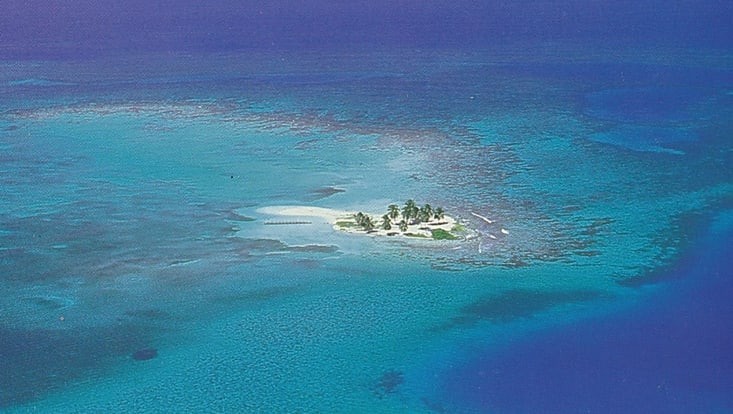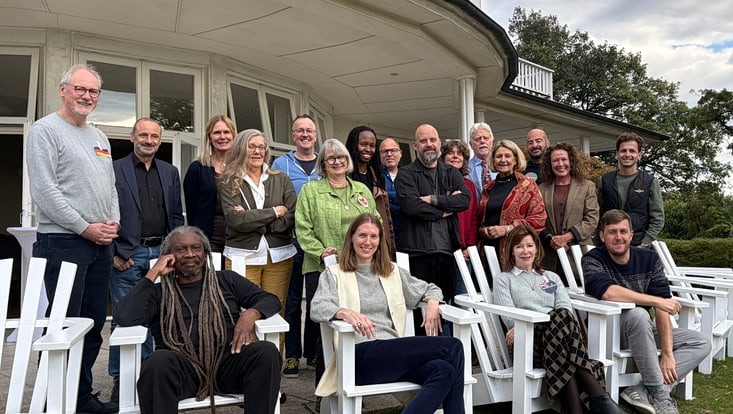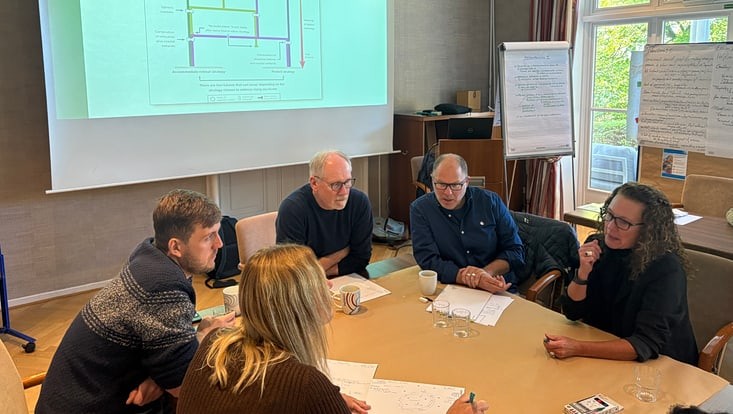and Society (CLICCS)
UNESCO Symposium HamburgToo small to survive?
9 October 2025, by Thomas Merten

Photo: Beate Ratter
At the UNESCO Symposium in Hamburg, experts from around the globe sought new ways to help island nations adapt to climate change.
“Sinking nations,” “in jeopardy,” “doomed”: phrases like these often give you the impression that small islands in the Caribbean, Atlantic and Pacific will soon helplessly fall victim to the rising seas. Though that’s not entirely wrong, it ignores the wide range of options available to island nations in terms of weathering the impacts of climate change – provided the right framework conditions are in place and their citizens can capitalize on their social and cultural advantages.

Climate researchers and experts from the natural and social sciences, engineering and linguistics recently gathered in Hamburg to critically assess the dominant narratives and discuss creative solutions on an interdisciplinary basis. The symposium was organized by Prof. Beate Ratter from the University of Hamburg’s Cluster of Excellence CLICCS, who is also the UNESCO Chair of Societal Climate Change Research and Resilience. “Our goal was to overcome the borders between disciplines and learn something new from one another,” says Ratter.
Adaptation as a cultural strength
In economic terms, small islands are often more successful than large countries; in fact, many of the former are veritable oceanic states, covering huge expanses of water and home to unique biodiversity. Further, as became clear during the symposium, island countries are no stranger to constant change. Constancy and unchanging conditions aren’t necessarily part of island peoples’ traditional worldviews – making them good candidates for climate adaptation.
“Beate Ratter invited us to put aside our standard thinking patterns and redefine the term ‘island’ – not with a focus on certainty, but with a healthy curiosity,” reports Anne McDonald from the Sophia Island Sustainability Institute, part of Sophia University, Tokyo. In her view, exchanges like the one in Hamburg help to show what measures are acceptable, affordable, and technically feasible on various islands.
There are often conflicting goals at play: tourism, for example, leads to more greenhouse gases that further warm the climate, but is vital to some islands’ economies. And despite the urgent need to adapt to climate change, acting prematurely can create new problems. Adaptation is not only a technological challenge, but frequently also a political, economic and cultural one, and most often can only be achieved step by step.
The courage to dream

All too often, related discussions begin with limitations – budgets, regulations, and the fear of taking risks. “These limitations can stifle creativity,” says Jean Mitchell, a Professor of Anthropology and UNESCO Chair of Island Studies and Sustainability at Prince Edward University, Canada. “But precisely imagination and courage are essential for effective adaptation.”
One question came up repeatedly: could some islands simply be too small to survive? In this regard, it’s not just their geography that counts, as Alexandre Magnan, a geographer at New Zealand’s Cawthron Institute, explains: “We need to rethink whose voices are heard, whose knowledge counts, and whether a given perspective – no matter how local it may be – could ever be too small to be of significance.”
Accordingly, local and traditional knowledge are indispensable. For example, biodiverse crops can be used to improve food security. In addition, more self-determination is a key aspect, with regard to e.g. energy production, food production and economic diversity. For example, the ocean is vital to food security and commerce. Changing water temperatures, however, can produce shifts in fish stocks – which is bad news for fishers. But when it comes to addressing these topics politically, island countries are frequently underrepresented in international negotiations.
Every island is different
No two islands are alike. Even if their regions and economies are similar, each is uniquely shaped by its own landscape, traditions and values. This produces individual worldviews, which in turn inform its inhabitants’ sense of self and home – not to mention their goals. Consequently, it’s essential that we listen to their voices and develop solutions together with them.
Being small can also have its advantages – that was one key finding from the symposium. “After all, small islands are small enough to implement changes,” says Anne McDonald. As she summarizes: “When we can bring together local narratives with regional and global perspectives, the effects of gatherings like this one reach far beyond the participants in Hamburg.”
More information
Beate Ratter is a Professor of Integrative Geography and conducts research at both the Cluster of Excellence Climate, Climatic Change, and Society (CLICCS) and at Helmholtz-Zentrum Hereon.
At the University of Hamburg, she also serves as UNESCO Chair of Societal Climate Change Research and Resilience.
More on the topic: Grasping climate change takes a personal experience


